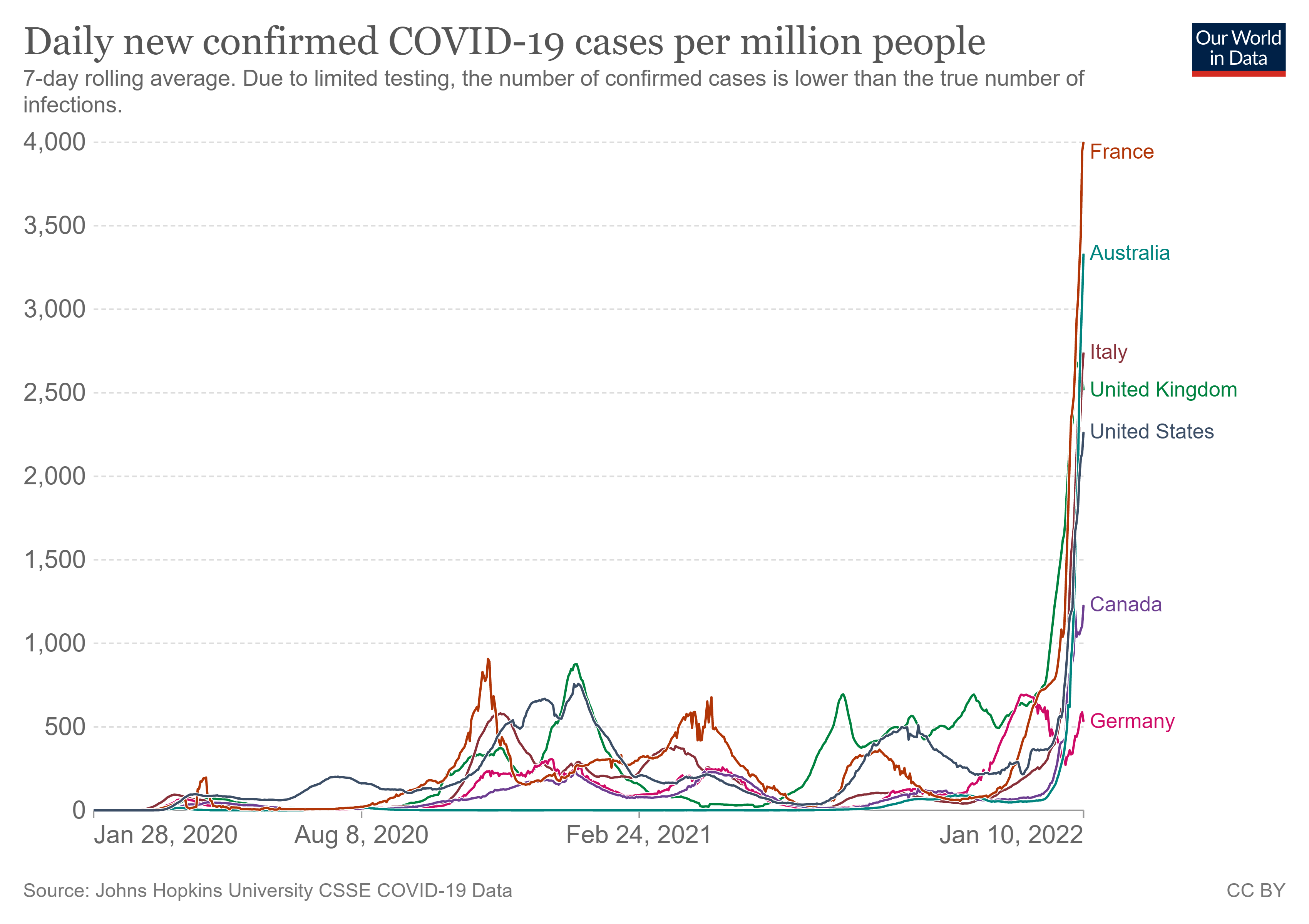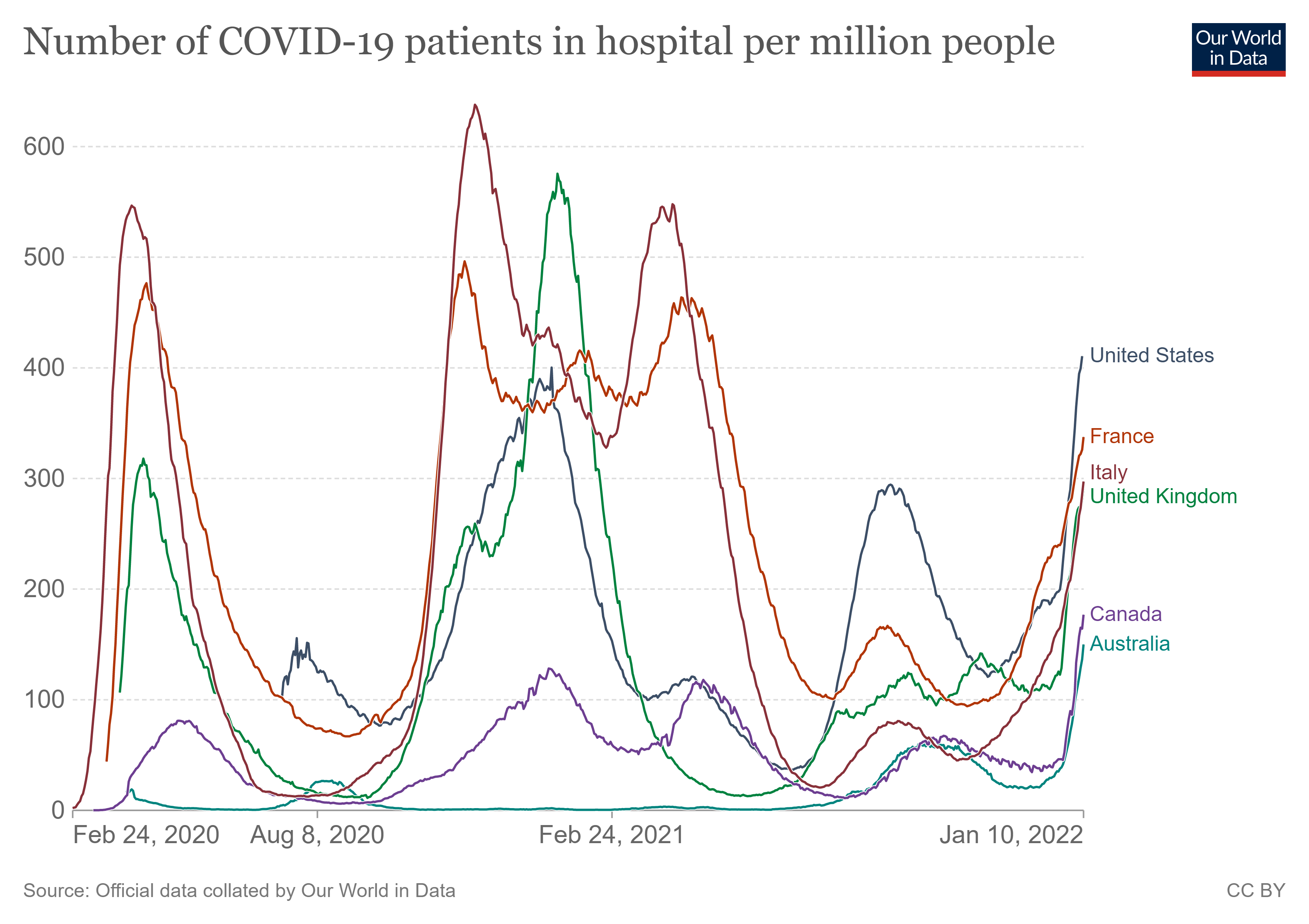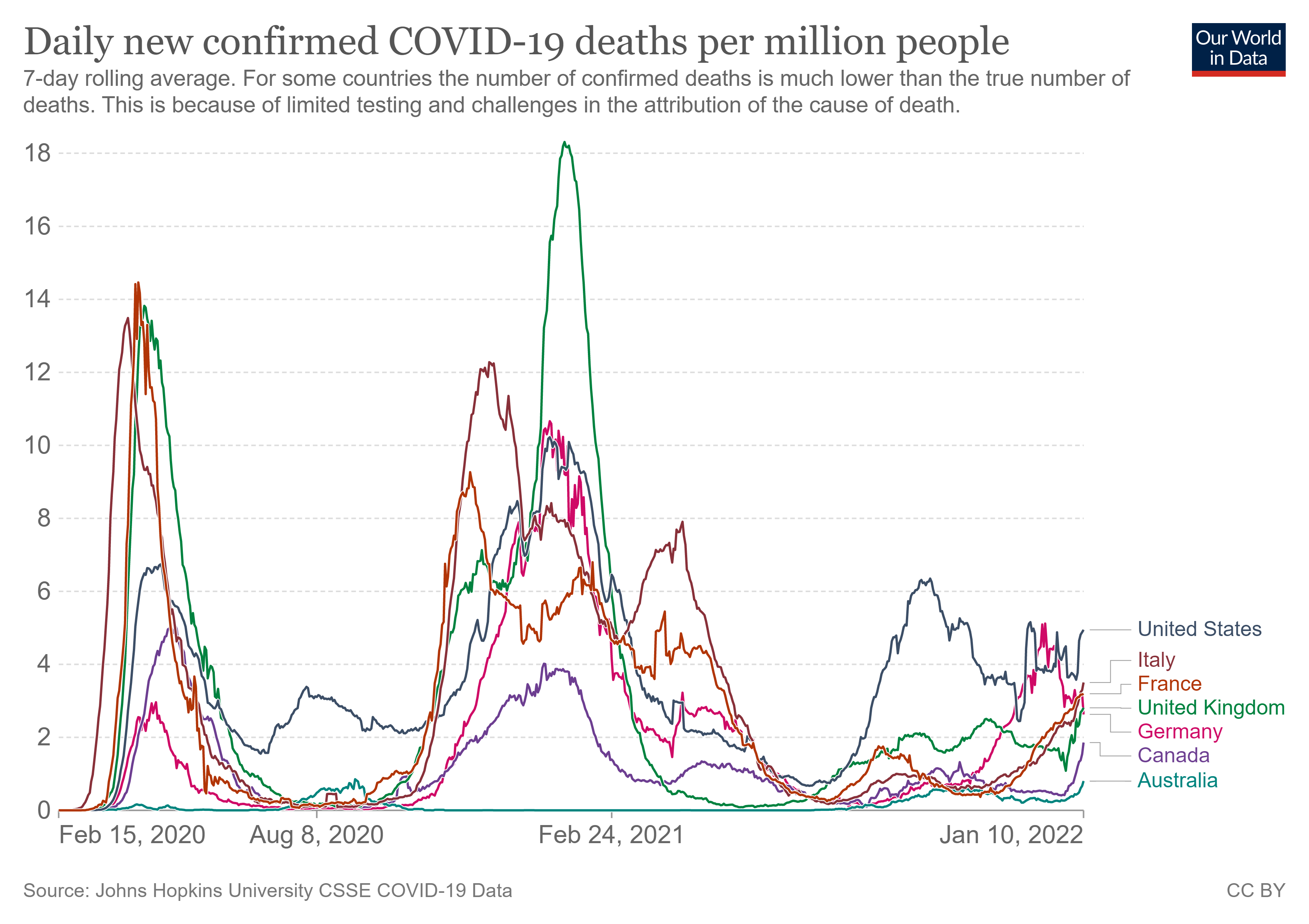Australia's seven-day rolling average of COVID-19 cases is among the highest in the world - as a percentage of population - for the first time during the course of the pandemic.
Data collected by Johns Hopkins University, available on the Our World In Data site, shows how Australia's average ranks among several other developed, Western nations, including the US, UK, France, Italy, Germany, and Canada.
Australia's average is close to 3400 cases per million people - the second highest on the graph, behind only France.
LIVE UPDATES: More than 40 dead, nearly 75k new cases across Victoria and NSW

It's the first time since January 28, 2020, that Australia has ranked so highly - but the graph shows that the other countries on it have also recorded recent, massive spikes, underscoring the spread of the highly transmissible Omicron variant.
But it's not the full picture.
Measuring Australia's death and hospitalisation rates against the same countries offers a necessary balance, with our country recording the lowest percentage of both.
READ MORE: How Australia's fast food giants are facing food supply crunch

The data shows that as a seven-day rolling average, Australia has recorded fewer than two deaths per million people, and about 150 hospitalisations per million.
Given the US takes top spot in both metrics (about five deaths and just over 400 hospitalisations per million people), this can likely be attributed to Australia's high rate of vaccination.
Canada and Australia top the vaccination percentage list among the countries measured, with the US languishing at a shade over 60 per cent.
READ MORE: Frustration at 'crippling' Qld quarantine for international pilots

This morning, infectious disease expert Professor Peter Collignon told Today that the mental paradigm shift of trusting in the vaccine's protection was still yet to take place in Australia, with people's reflexive wariness after two years of the pandemic very much dominant.
"A lot of us will get COVID over the next year or two," Professor Collignon said.
"We need to avoid it, if we can. But the consequences now for serious disease, which is the main thing that matters, are so much less than a year ago. We need to come to terms with that."
